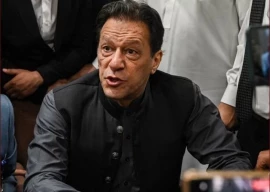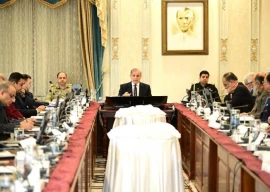
Higher learning institutes need to focus on research, innovations and capacity-building of individuals rather than awarding degrees.
This was the gist of views expressed by a half-a-dozen vice-chancellors (VCs) of universities at a lecture on “State of higher education in Pakistan” organised by the Sustainable Development Policy Institute (SDPI) here on Monday.
The session found itself embroiled on discussing the already known issues in the higher education than offering solutions to Pakistan’s problems and development issues.
The newly appointed Higher Education Commission (HEC) Chairman Dr Mukhtar Ahmad in his lecture said since the formation of the HEC in 2002, the state of higher education has improved significantly in terms of research output and quality.
“It is now time to think of ways in which higher education can have real impact on society at large.” He stressed the need for a value-based education system and increased investment from private sector, especially university-industry linkage to ensure research as the government alone could not support universities.
Dr Mukhtar said that he was not against the devolution of the HEC but it should be done after carrying out a complete paper work, and putting in place alternative system in provinces instead of adopting the “switch on, switch off approach”.
A consultative process was being pursued with provincial governments regarding the new higher education policy.
He also said that budgetary allocations for higher education should be increased progressively and not in an abrupt manner.
He said that higher education institutes were focussing on major urban areas and neglecting the rural areas. There is an equal need to focus on smaller cities and rural areas, he exhorted.
“It is high time to explore ways to have a real impact of knowledge on the whole society,” he said.
SDPI Executive Director Dr Abid Suleri said it was important that real world problems and development issues should be part of curricula taught in universities.
He said that in Bangladesh and India, universities were more proactive in linking research with policy, while in Pakistan think-tanks, not the universities, were playing the role in the policy domain.
Karachi University Vice-Chancellor Dr Muhammad Qaiser said that allocations for higher education needed to be increased to at least 4 per cent of the GDP in the upcoming budget. He said that there should be a balance between basic research and applied research to find solutions to the real-world problems.
Pakistan Institute of Development Economics (PIDE) Vice-Chancellor Dr Asad Zaman said that liberal arts and culture were being neglected by higher education institutes. “This is unfortunate, since we have a strong poetic heritage which can be very important in inspiring students to serve the nation.”
Quaid-i-Azam University Vice-Chancellor Dr Eitzaz Ahmed emphasised on quality education at college and school levels. He said that there was a need for adopting qualitative measures to gauge the impact of education in the society.
Fatima Jinnah Women University VC Dr Samina Qadir stressed the need for capacity-building of teachers besides giving more seriously to college education. “Education should also be gender-responsive,” she added.
International Islamic University Rector Dr Masoom Yasinzai observed that investment in higher education over the last one decade have changed the landscape of the country. Pakistan now has a share of 0.25% in global academic literature. Allama Iqbal Open University VC Dr Ali Asghar Chishti emphasized on adequate training and workshops for teachers as well.
Published in The Express Tribune, April 22nd, 2014.

-(1)1717678110-0/Kendrick-(1)-(1)1717678110-0-165x106.webp)


1733142750-0/Untitled-design-(6)1733142750-0-165x106.webp)












COMMENTS (1)
Comments are moderated and generally will be posted if they are on-topic and not abusive.
For more information, please see our Comments FAQ